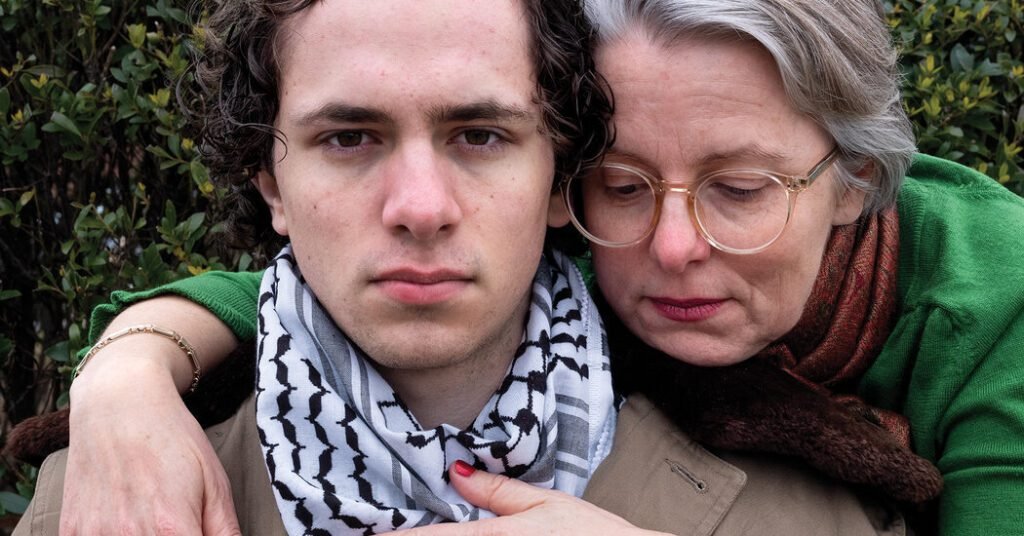An ocean away Elizabeth Price, Hisham’s mother, was awakened by a call from her brother in Burlington. He was in the hospital, he told her. Hisham and his friends had been shot. Elizabeth struggled to process what he was saying. First came the shock, then the guilt: The children had visited her mother’s house. He immediately called Tamara. “Shoot where, shoot how?” Tamara screamed into the phone. Her mind raced. “Is Kinnan okay? is he dead Is he dead?”
Families rushed to Vermont. Elizabeth, her husband and Tamara went out first. Tahseen’s mother, who had to arrange visa logistics, would join them a week later. Although Ben Gurion Airport, near Tel Aviv, is an hour’s drive from Ramallah, Hisham’s father could not access it with his Palestinian ID. The parents followed the route most Palestinians follow: they drove through streets where settlers threw stones at passing cars, crossed a bridge on the Israeli-controlled Jordanian border and finally passed through several security checkpoints at the international airport near Amman. They could only cross the border in the narrow window allowed by Israel, which happened to be well before their scheduled flight, so they waited 12 hours in Amman, in fear and disbelief.
In the ICU the three friends compared their wounds. Kinnan was hit in the gluteal muscles, but hospital staff allowed him to stay in the unit with his friends, who suffered more serious injuries. A bullet tore through Tahseen’s chest above his right lung and the fall broke his ribs. Hisham could no longer feel his legs. “Hey guys, did we get shot?” Tahseen asked.
Charmed by shock and painkillers, they laughed and joked, “Great, that happened in Vermont.” “It was probably the only crime Burlington had seen all year.” They didn’t say much about the shooter. They could guess why they were targeted. In the last two months, they had seen Palestinians being killed in droves, with the support of the United States — and no one seemed to care. One does not randomly decide to shoot someone, the friends agreed.
Within a few hours the police came to talk to them. Hate crimes, which are based on the mental state of the attacker, are difficult to prove in court. This case was even trickier: The shooter didn’t say anything out loud before, during or after the shooting, and the man police had charged with the attack, Jason Eaton, was a somewhat complicated character. He had returned to Vermont the previous summer, after a few years in upstate New York. Things had taken a turn for the worse — a series of troubled relationships and jobs gone wrong. He spent Thanksgiving with his mother, who later told a reporter he had mental health issues but was “totally normal” that day. Eaton appeared to have engaged in political discussions online. According to a local Vermont newspaper, he had left comments on X about an article about Gaza — “What if someone owned your country? Wouldn’t you fight them?’ — and described himself as a “radical citizen who patrols democracy and crony capitalism for oaths.” According to a police affidavit, Eaton had a handgun, a rifle and two shotguns in his apartment, along with ammunition according to shell casings found at the crime scene. (Eaton has pleaded not guilty to three counts of attempted second-degree murder.)

